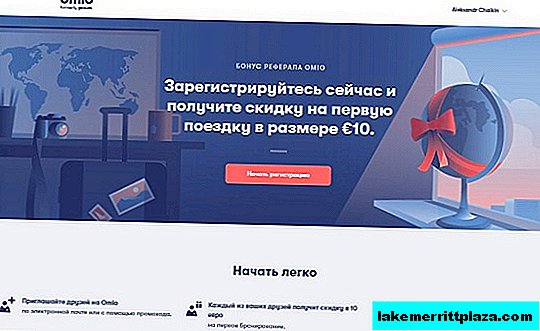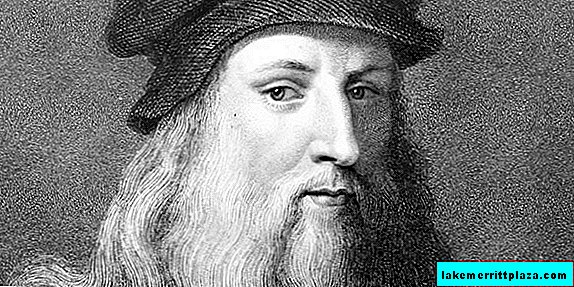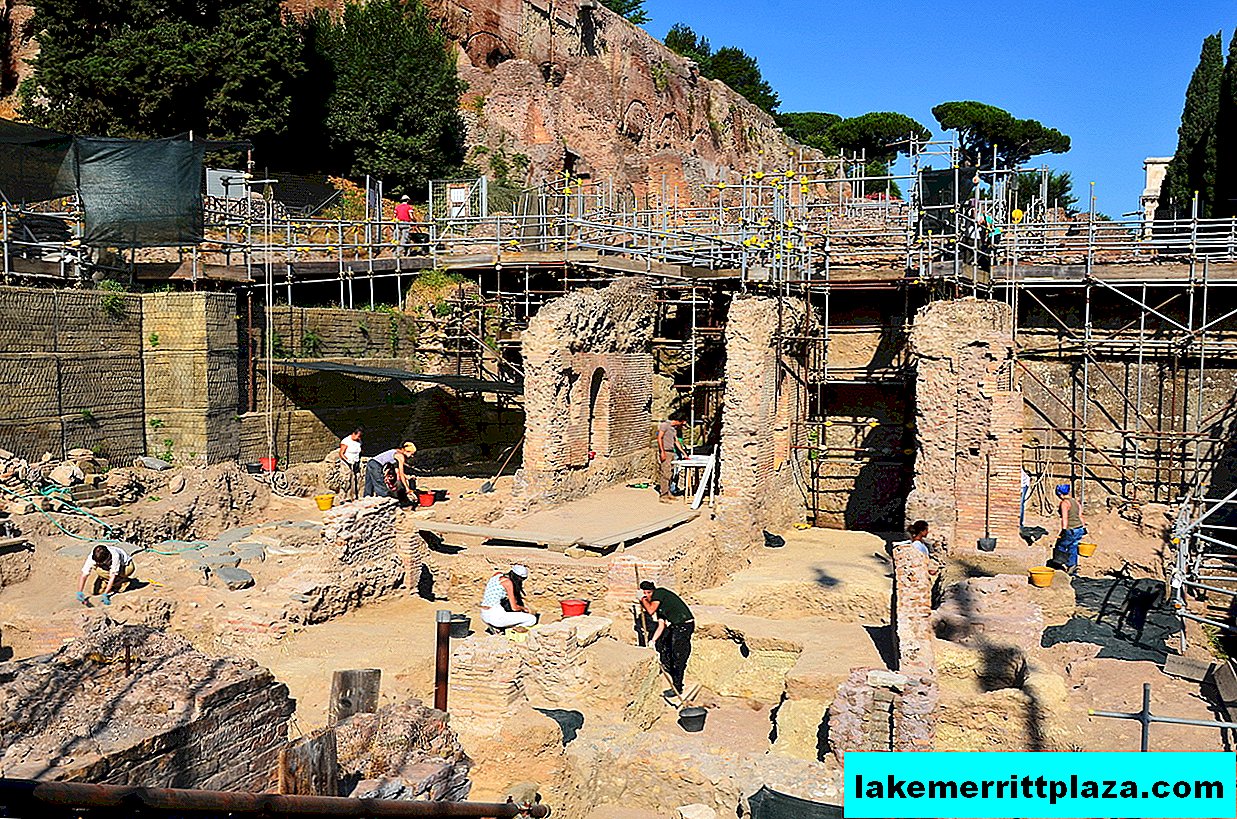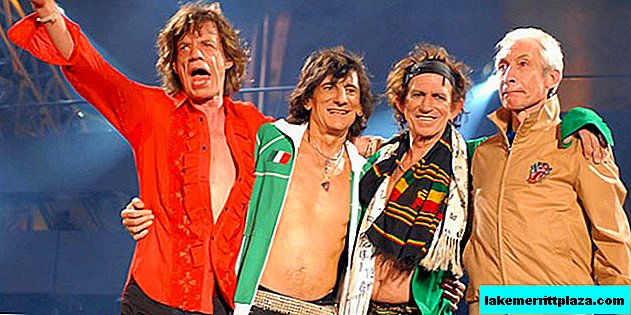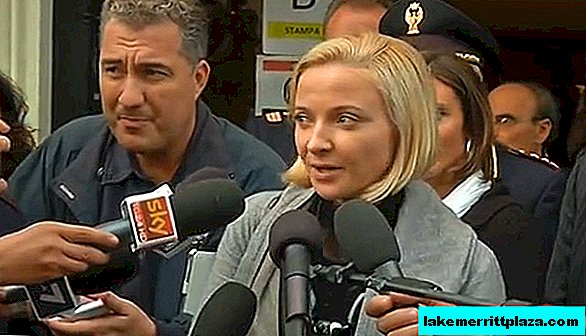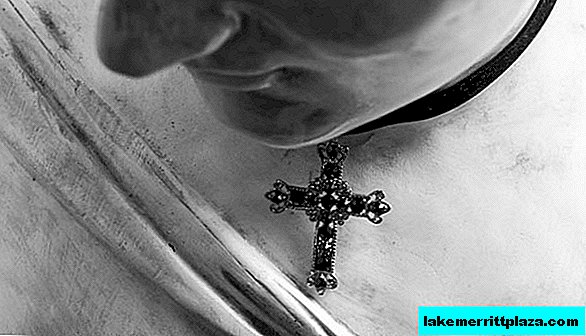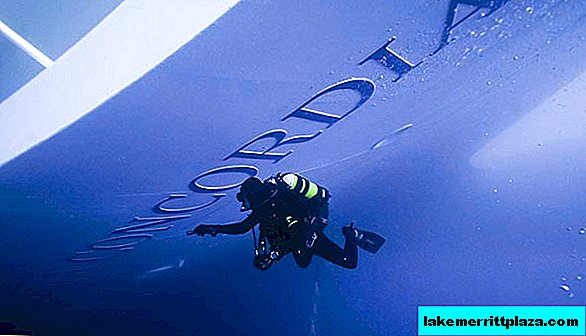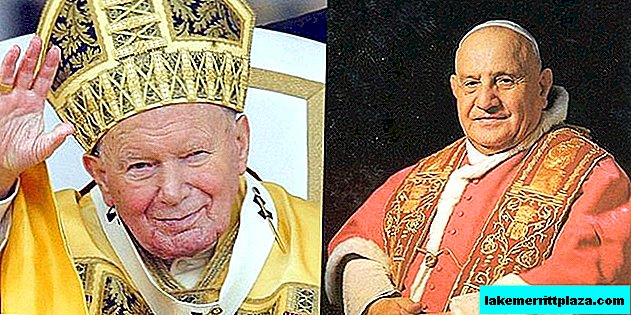In Potsdam you need to go for the sights. But its architecture is also interesting. Half-timbered houses, mansions in the classical style of the Enlightenment, modernist buildings, eateries that preserve the spirit of old Germany, the bustle of the Dutch quarter - appear as a single ensemble, where different styles and eras are combined into a single whole, and it’s very attractive.
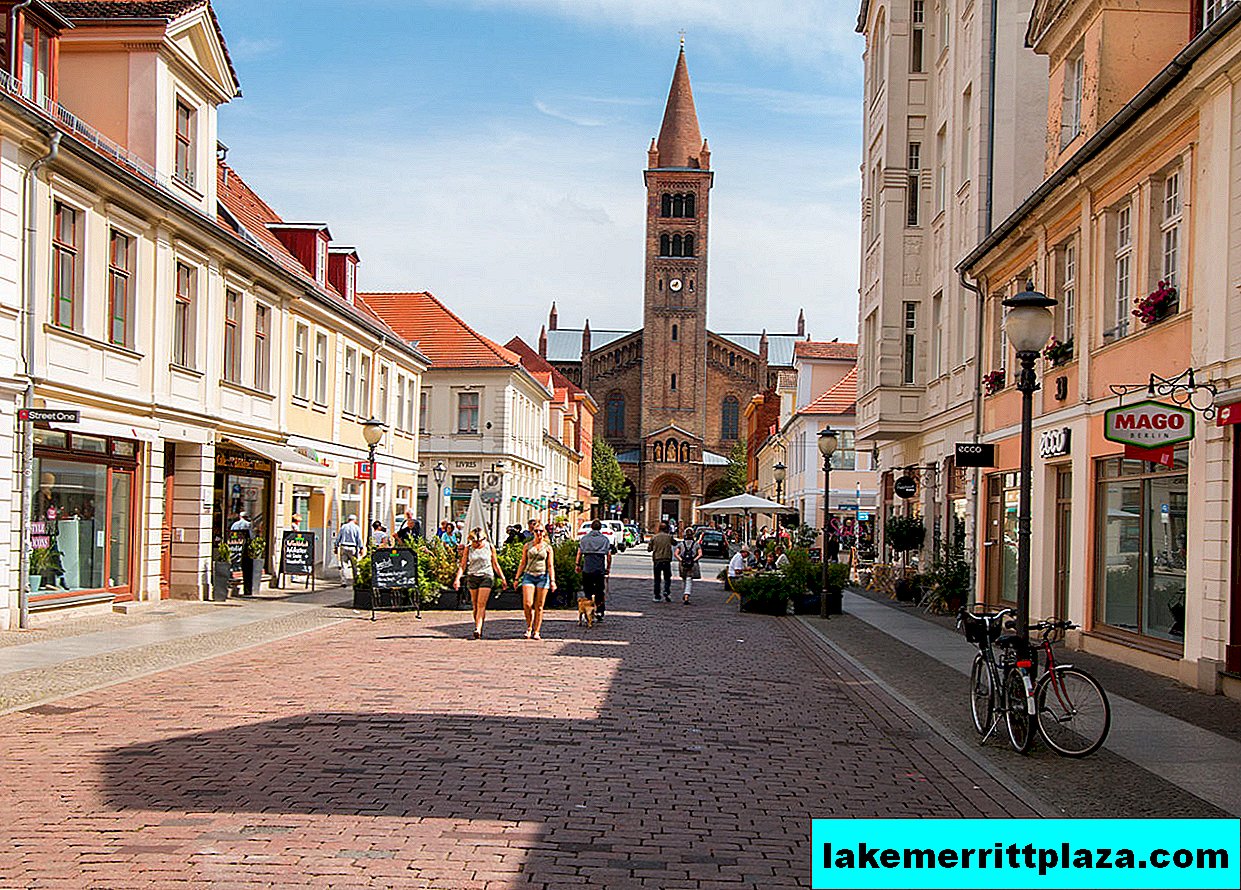
Potsdam, photo by Mundus Gregorius
Potsdam is a small but very colorful city - the capital of Brandenburg. It stands on the Havel River, 20 kilometers southwest of Berlin. The riverbed forms several lakes within the city. In Potsdam, dozens of castles and residences were built, huge magnificent parks were laid out.
When is the best time to go?
The best time to visit Potsdam is from May to September. At this time, the most favorable weather for walking. Even in the midst of summer, temperatures rarely rise above 25 ° C.
Sights
 Sanssouci
Sanssouci
 New garden
New garden
 Park Babelsberg
Park Babelsberg
 Lindstedt Palace
Lindstedt Palace
 Pfaueninzel Castle
Pfaueninzel Castle
 Glienicke Palace
Glienicke Palace
 Church of st. Nikolay
Church of st. Nikolay
 French church
French church
 Church of Alexander Nevsky
Church of Alexander Nevsky
 Brandenburg Gate
Brandenburg Gate
 Nauen Gate
Nauen Gate
 Hunting gates
Hunting gates
 Old Market Square
Old Market Square
 Area New Market
Area New Market
 Dutch quarter
Dutch quarter
 Einstein Tower
Einstein Tower
 Hans Otto Theater
Hans Otto Theater
 Cinema Park Babelsberg
Cinema Park Babelsberg
Sanssouci

Sanssouci Palace on the background of the Vine Terraces, photo blacky_hs
The symbol of the city is the majestic ensemble of Sanssouci. In the middle of a huge terraced park, occupying an area of 300 hectares, stands the "Prussian Versailles" - the Rococo palace, framed by the greenery of the vineyards, Sanssouci. On the western outskirts - a large New Palace, a masterpiece of Prussian baroque, a residence for official receptions. On the east side is pink Charlottenhof in the style of a Roman classic villa. The last in the Sanssouci ensemble was the Orangery Palace with a gallery of paintings and a conservatory.
New garden

Marble Palace (Marmorpalais), photo by Uwe Weisel
The New Garden Ensemble (Neuer Garten) is located in the north of Potsdam, at the lakes of Jungfernsee and Heiliger See. The area of the landscape park is 102 ha. Here stands the classic Marble Palace (1792) with a rotunda. Nearby are the romantic ruins of the palace kitchen, a stone pyramid - a former storage glacier. In the northern part of the Neuer Garten is the cozy Cecilienhof Palace in rural English style. On the territory of Neuer Garten there are preserved garden houses - Red, Brown, White, two-story Green. In the building of the former dairy farm, a popular beer house is today.
Park Babelsberg

Park Babelsberg, photo by Gertrud K.
Park Babelsberg is located by Lake Glienicke. On the territory of the landscape complex with waterfalls and ponds stands a neo-Gothic brick castle - Schloss Babelsberg. On the river bank - Small Palace in the "Tudor" style. At the northern end of the park is a “fortress” tower, a water station. The ensemble of Babelsberg is decorated with architectural monuments: the Flatovturm tower, the Trial Pavilion, the Sailor's House.
Lindstedt Palace

Lindstedt Palace (Schloss Lindstedt), photo tel33
The neoclassical palace Lindstedt (Lindstedt) with a colonnade and a tower stands, surrounded by a garden. Concerts and seminars are held here.
Pfaueninzel Castle

Palace Pfaueninsel (Schloss Pfaueninsel), photo TsungTsung Wu
The romantic Pfaueninsel Castle (Schloss Pfaueninsel) is built on an island in the middle of the Havel River. They get to him by ferry. Inside there is a museum of the history of the palace and the Peacock Island.
Glienicke Palace

Glienicke Palace (Schloss Glienicke), photo riesebusch
Glienicke Palace (Schloss Glienicke), surrounded by the eponymous park, is made in the style of a classic Italian villa. This architectural ensemble, in addition to the main building, combines two pavilions and a former casino with guest quarters.
Church of St. Nicholas

Church of St. Nicholas (Kirche St. Nikolai), photo stadt + land
Church of St. Nicholas (Kirche St. Nikolai) - the largest religious building in Potsdam. The grandiose temple with a green dome was built in 1830-50, restored after the bombing of World War II, consecrated again in 1981.
French church

French Church (Franzosische Kirche), photo by Avda
The French Lutheran Church (Franzosische Kirche) was designed by Georg Wenceslas von Knobelsdorf in 1752-53 for the growing French Protestant community of Potsdam. This is a small building in the form of the Roman pantheon. At the entrance there are 2 allegorical sculptures - Mercy and Hope. Inside there are no altars, crucifixes and wall paintings that are customary for the church. Here plays the largest in the world - the Grunberg organ.
Church of Alexander Nevsky

Church of Alexander Nevsky (Alexander-Newski-Gedächtniskirche), photo A.Savin
Alexander Nevsky Church (Alexander-Newski-Gedächtniskirche) is a stronghold of Orthodoxy in Potsdam. The building is in the old Russian church style with elements of classicism. It is located in Aleksandrovka - the historical Potsdam Russian colony, founded in 1826-27. for singers of the choir of Russian grenadiers.
Potsdam Gate

Brandenburger Gate in Potsdam, photo by Bruhaha
There were five gates in the city wall of Potsdam, only three remained. Brandenburg - a classic Roman type arch - are in the western part of the street of the same name. The Nauener Tor is located in front of the Dutch Quarter. The oldest Hunting Gate (Jägertor) stands at the beginning of Lindenstrasse, in the northern part of the city.
Old market
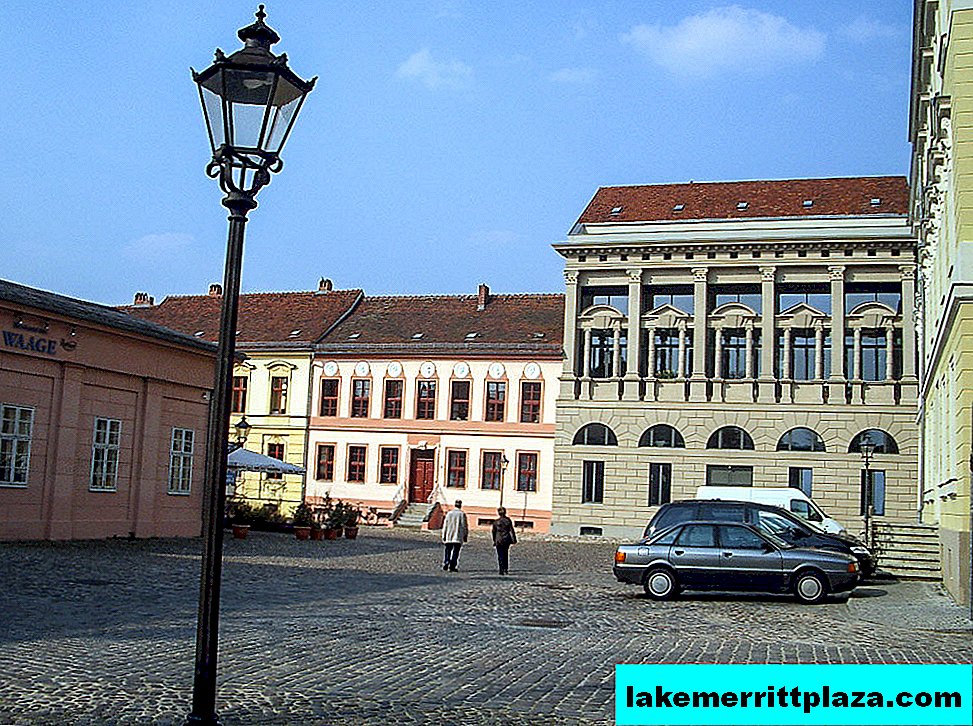
Old Market Square (Alter Markt), photo Bärwinkel, Klaus
The old market, the historical center of Potsdam, is located in front of Nikolaikirche. The ensemble Alter Markt includes the City Palace, town hall, Lustgarten, the hotel "Mercur".
New market

New Market Square (Neuer Markt), photo unify
The new market (Neuer Markt) is a baroque square that has preserved the appearance of the XVIII century. There are mansions, former warehouses and stables converted into cultural institutions.
Dutch quarter

Holland Quarter (Holländisches Viertel), photo by Creando
The Dutch quarter (Holländisches Viertel) is a cozy historical district, a colorful architectural ensemble, built during the second expansion of Potsdam - in the period 1733-40. , the best Dutch artisans invited by Frederick William I. A small residential town was built for the craftsmen in their usual style. The Dutch quarter was restored in the seventies. Seasonal fairs are held here: Christmas, Autumn Pottery Market, April Tulip Festival; many antique shops, souvenir shops, restaurants and cozy cafes are open.
Einstein Tower

Einsteinturm Tower, photo by Isaiah King
Einstein Tower (Einsteinturm) - an example of the architecture of expressionism, an astrophysical observatory in the Park of Science named after Albert Einstein on Mount Telegrafenberg (Telegrafenberg). Built in 1922.
Hans Otto Theater

Hans Otto Theater (Hans Otto Theater), photo murphman61
The Hans Otto Theater is a modern building in a futuristic style on the banks of Tifersee. Built in 2006, equipped with the latest stage equipment.
Cinema Park Babelsberg

Filmpark Babelsberg, photo by Jörg Weingrill
Cinema Park "Babelsberg" (Filmpark Babelsberg) - a thematic entertainment complex dedicated to the history of the oldest film studio in the world. Next to it is the Cinema Museum (Filmmuseum).













History paragraph
The history of Potsdam began in 993 with the Slavic village of Poztupim. By the 13th century, the settlement became part of the Brandenburg Margrave; in the 14th century, it received city rights. Potsdam remained a small town until in the XVII century. Frederick William I of Brandenburg did not declare him his hunting residence. Under Frederick the Great, the city turned into a thriving city with many palaces and gardens. On March 21, 1933, in the Potsdam Garrison Church, President Hindenburg and the new Chancellor of Germany, Adolf Hitler, shook hands - this was a symbolic beginning of the era of the Third Reich. In April 1945, many city buildings were destroyed. In July-August of the same year, the Potsdam Conference was held, which determined the fate of Germany.
The city was restored, and now it is considered one of the most beautiful in Europe. This was appreciated by UNESCO, including its palaces and gardens in 1991 in the list of World Cultural Heritage.
Festivals and Holidays

At Potsdamer Erlebnisnacht, photo by Steffen Kahl
The start of navigation on the Havel River marks the traditional fleet parade.
In June, the city opens the festival of academic music - the famous "Potsdam - Sanssouci". Classical works sound in palaces and parks. In the same month, the Jazz Festival and the Ritterfest - Medieval Knight's Festival are held.
Every year, on the last Saturday of July, the night of Potsdamer Erlebnisnacht takes place. The motto of this fascinating event is Adventure, shopping, enjoyment. Guests are entertained by musicians and acrobats until late at night, shops are open, restaurateurs are invited to visit the best restaurants, bars and cafes of the city.
In mid-August - the theatrical festival Potsdamer Schlössernacht ("Potsdam Palace Night") with a symphony concert, street performances, fireworks, delicious treats.
Bright and unforgettable are the celebrations of Christmas and New Year.
How to get from Berlin to Potsdam
From Berlin to Potsdam 20 km. You can get on the commuter train and the S-Bahn metro station.
S-bahn
S-Bahn trains run every 10 minutes. You can catch them at the Berlin Main Railway Station (Berlin Hauptbahnhof), at the Zoologischer Garten station (Bahnhof Berlin Zoologischer Garten) and at Alexanderplatz (Bahnhof Alexanderplatz). Get off at Potsdam Hbf station.
Regional trains
Sanssouci Park is best reached with regional trains that depart every hour from Berlin Hauptbahnhof, Berlin Zoologischer Garten and Berlin-Charlottenburg, and then to Potsdam Charlottenhof Bhf and Potsdam Park Sanssouci Bhf.
Travel time 25-45 minutes.
Tickets for S-Bahn and local trains are the same. Therefore, in the terminal, just drive in zone C, buy a ticket, compost it at the departure station and take the train.
For timetables and prices, see www.bvg.de and www.vbb.de
Potsdam Transport

Tram in Potsdam, photo by kaffeeeinstein
Potsdam's public transport is represented by buses (about 20 routes), trams (7 lines) and ferries.
It is convenient to travel around the city by bicycle. Bicycle paths run along highways. Rent a bike at the rental center (such as CityRad or Potsdam per Pedales).
Kitchen
You can try traditional German cuisine in restaurants:
Klosterkeller (Friedrich-Ebert-Strasse 94);
Loft (Brandenburger Strasse 30-31);
Zum Fliegenden Holländer (Benkertstrasse 5 in the Dutch Quarter);
Am Pfingstberg (Große Weinmeisterstraße 43B)
Dreimäderlhau (Hermann-Elflein-Straße 12)
Shopping

Shop, photo HEN-Magonza
At Bassinplatz and Weberplatz, markets run every week where you can buy local products.
You will find a lot of interesting things in antique stores (over 70!) In the Dutch quarter.
It is a pleasure to stroll through the shops of the Bahnhofspassagen shopping galleries in the center of Potsdam (Babelsberger Str. 16). And on the outskirts of the city in the Stern-Center shopping center, 85 different stores are waiting for buyers.
Where is better to rent a house
You can rent a house in Potsdam anywhere. The transport connection is excellent, everything is clean, safe and comfortable. The main attractions, parks with lakes are scattered around the city, so wherever you stay, it will be close to a historical place, palace or museum. There is no significant variation in prices due to the location of the hotel, in the historical center or on the lake.
How do I save on hotels?
Everything is very simple - look not only at the booking. I prefer the search engine RoomGuru. He is looking for discounts at the same time on Booking and on 70 other booking sites.

